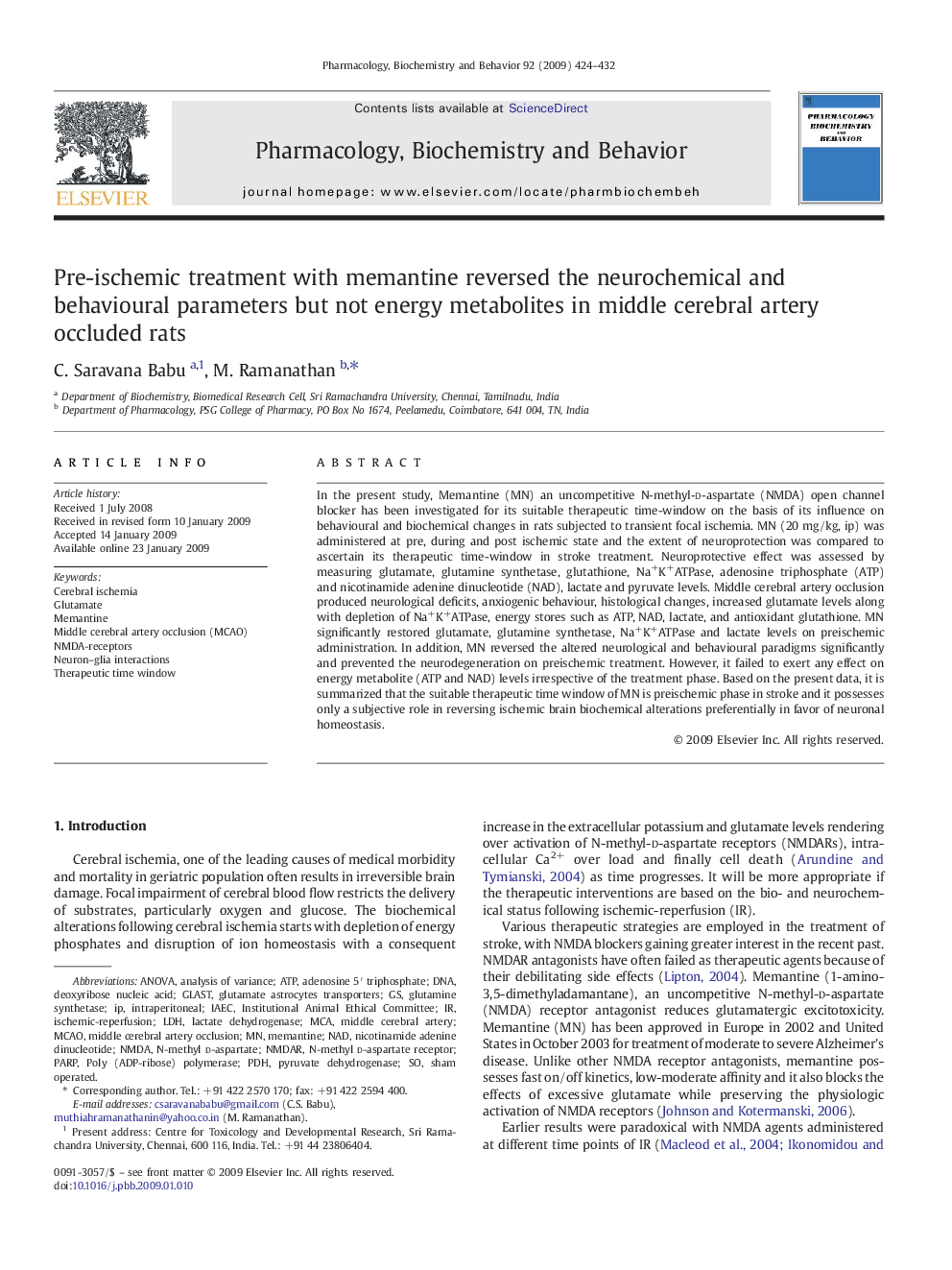| Article ID | Journal | Published Year | Pages | File Type |
|---|---|---|---|---|
| 2013737 | Pharmacology Biochemistry and Behavior | 2009 | 9 Pages |
In the present study, Memantine (MN) an uncompetitive N-methyl-d-aspartate (NMDA) open channel blocker has been investigated for its suitable therapeutic time-window on the basis of its influence on behavioural and biochemical changes in rats subjected to transient focal ischemia. MN (20Â mg/kg, ip) was administered at pre, during and post ischemic state and the extent of neuroprotection was compared to ascertain its therapeutic time-window in stroke treatment. Neuroprotective effect was assessed by measuring glutamate, glutamine synthetase, glutathione, Na+K+ATPase, adenosine triphosphate (ATP) and nicotinamide adenine dinucleotide (NAD), lactate and pyruvate levels. Middle cerebral artery occlusion produced neurological deficits, anxiogenic behaviour, histological changes, increased glutamate levels along with depletion of Na+K+ATPase, energy stores such as ATP, NAD, lactate, and antioxidant glutathione. MN significantly restored glutamate, glutamine synthetase, Na+K+ATPase and lactate levels on preischemic administration. In addition, MN reversed the altered neurological and behavioural paradigms significantly and prevented the neurodegeneration on preischemic treatment. However, it failed to exert any effect on energy metabolite (ATP and NAD) levels irrespective of the treatment phase. Based on the present data, it is summarized that the suitable therapeutic time window of MN is preischemic phase in stroke and it possesses only a subjective role in reversing ischemic brain biochemical alterations preferentially in favor of neuronal homeostasis.
